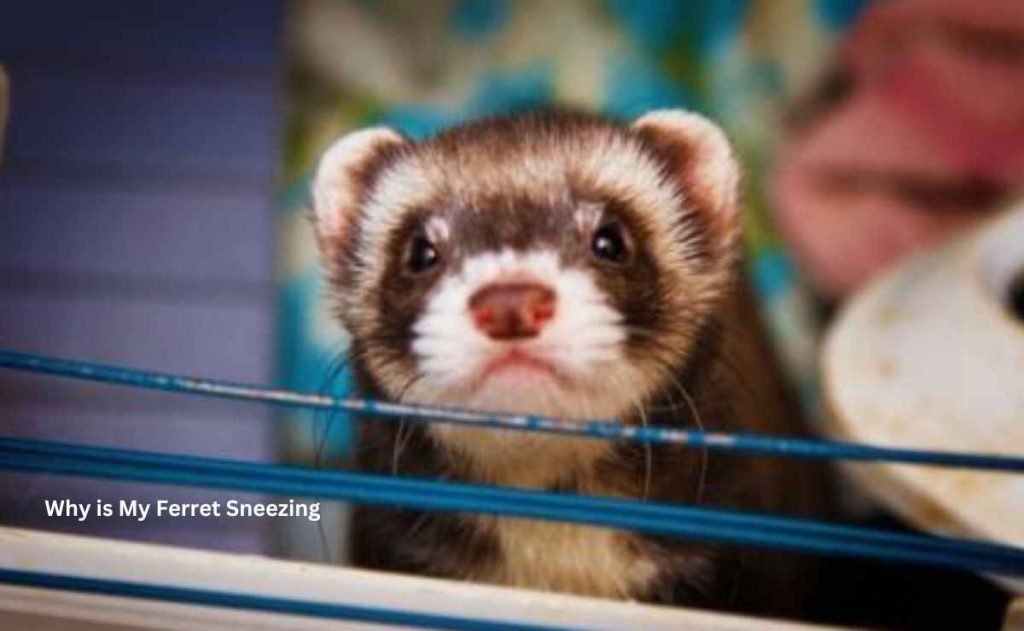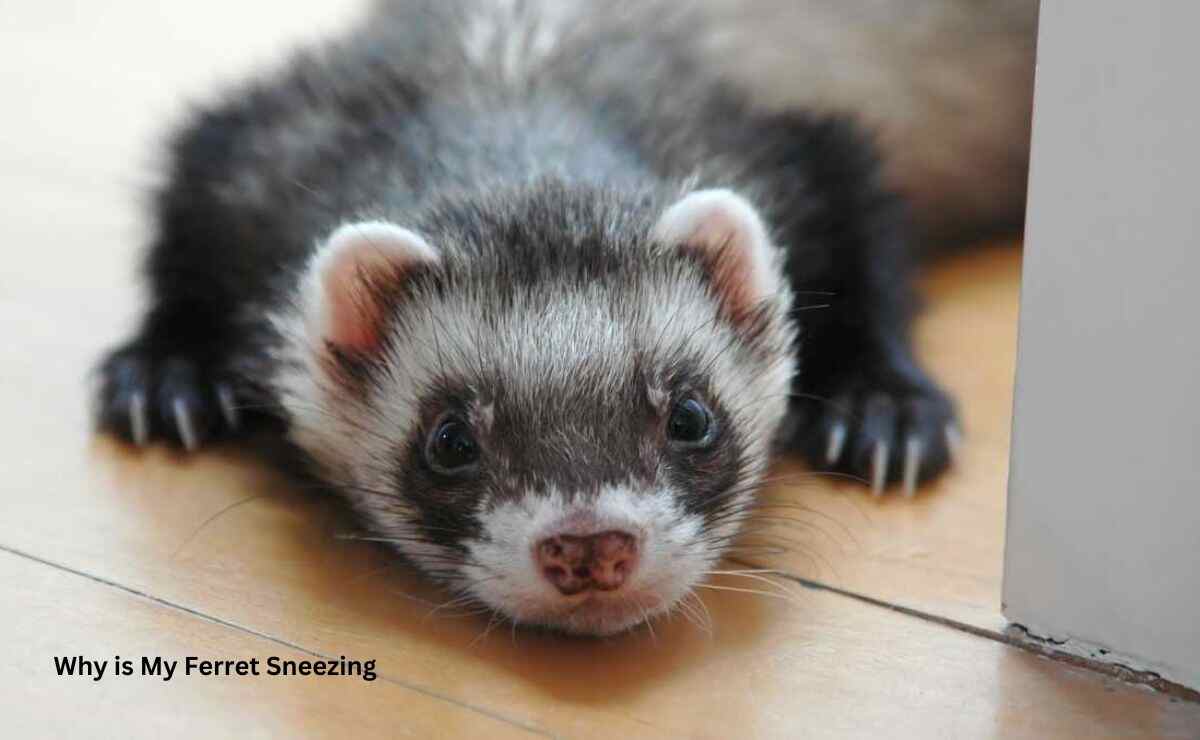If you’re wondering why your ferret is sneezing, there are a few possible explanations. In this blog post, we’ll explore the most common causes of sneezing in ferrets and offer some helpful tips on how to diagnose and treat them.
We’ll also provide tips on how to prevent sneezing in ferrets and advise on ways to manage any allergies your ferret may have. So, if you’re looking for answers to the question why is my ferret sneezing, read on for all the information you need!
Why is My Ferret Sneezing?

Ferrets are animals that have a respiratory system that is very similar to human lungs. As a result, they can get sick from a variety of respiratory infections, including the common cold.
Sneezing is one of the signs that your ferret is feeling sick and is trying to expel the infection. Ferrets usually recover from respiratory infections quickly, but if the infection is severe or persistent, it may require treatment with antibiotics.
If you notice your ferret sneezing often or has difficulty breathing, it is important to take him to the veterinarian for a checkup.
Is Sneezing Normal for Ferrets?
Yes, sneezing is normal for ferrets. Ferrets are obligate nasal breathers, which means that they need to breathe through their noses in order to stay healthy and comfortable.
Sneezing is one way that ferrets expel excess mucous from their nasal passages, which helps to clean and clear the airway.
How Do You Know if Your Ferret Has a Cold?
If your ferret is lethargic, has a dry mouth, or has difficulty breathing, the ferret may have a cold. Ferrets usually can’t bear too much cold environment. Ferrets are particularly susceptible to the common cold, and treatment often involves antibiotics and fluids.
If you think your ferret may have a cold, be sure to give her plenty of fluids and antibiotics and call your veterinarian for advice.
How to Treat a Sick Ferret That Has Got Cold?
If you notice that your ferret is sick and has started to get a cold, the best course of action is to take her to the veterinarian as soon as possible. A ferret with a cold may have a respiratory infection, which can be very serious and require treatment with antibiotics.
If the ferret is not treated immediately, she may develop pneumonia, which can be fatal. In addition to getting antibiotics, your ferret may also need to be hospitalized for observation and treatment. If you notice any other symptoms such as increased panting or difficulty breathing, take your ferret to the vet immediately.
How Do You Know if Your Ferret Has a Respiratory Infection?
There are a few signs that your ferret may have a respiratory infection, including:
- An increase in coughing or sneezing
- A decrease in appetite or energy
- Redness or discharge from the eyes or nose
- Lack of mobility
If you notice any of these signs in your ferret, it is important to take them to the veterinarian for an examination and diagnosis. The veterinarian may perform a variety of tests to determine the extent of the infection and help treat it accordingly.
Treatment for a respiratory infection usually involves antibiotics and supportive care. If the infection is severe, the veterinarian may also prescribe an inhaler to help the ferret breathe more easily.
How Long Do Ferret Colds Last?
Ferret colds typically last for about two to four days, but can sometimes be shorter or longer. Ferrets are prone to upper respiratory infections (URIs), so it is important to keep them warm, hydrated, and fed during their cold period to help ensure their health and well-being.
Ferrets should also be kept away from other animals who may be sick, as they may spread the ferret cold to them. If your ferret shows any signs of being ill, such as low energy or fever, contact your veterinarian immediately.
How Often Should Ferrets Sneeze?
Ferrets are known for their powerful sneezes, and it is important to keep their respiratory system healthy by providing them with the appropriate amount of sneezing.
Ferrets generally sneeze three to four times per day, and the frequency of sneezing can be controlled by adjusting the ferret’s diet or environment. If sneezing is not consistent or excessive, a veterinarian may be able to prescribe an anti-sneeze medication to help control the ferret’s sneezing.
How Do You Clean a Ferret’s Nose?
To clean a ferret’s nose, first, remove any excess mucous with a damp cloth. Then, use a pet wipe or a cotton swab moistened with hydrogen peroxide to clean the inside of the nose.
Finally, apply a drop or two of vaseline to the tip of the swab and use it to gently clean the ferret’s nose. Repeat these steps as necessary. Vaseline will help soften and lubricate the mucous, making it easier to remove.
Last Words
Ferrets are cute and cuddly animals, but they can also be quite sensitive. When they are sick, ferrets may experience a wide range of symptoms, including sneezing.
This blog provides information about why ferrets sneeze and how to treat them if they are sick. By understanding what is causing the sneezing, you can help your ferret get back to a healthy state as quickly as possible.
